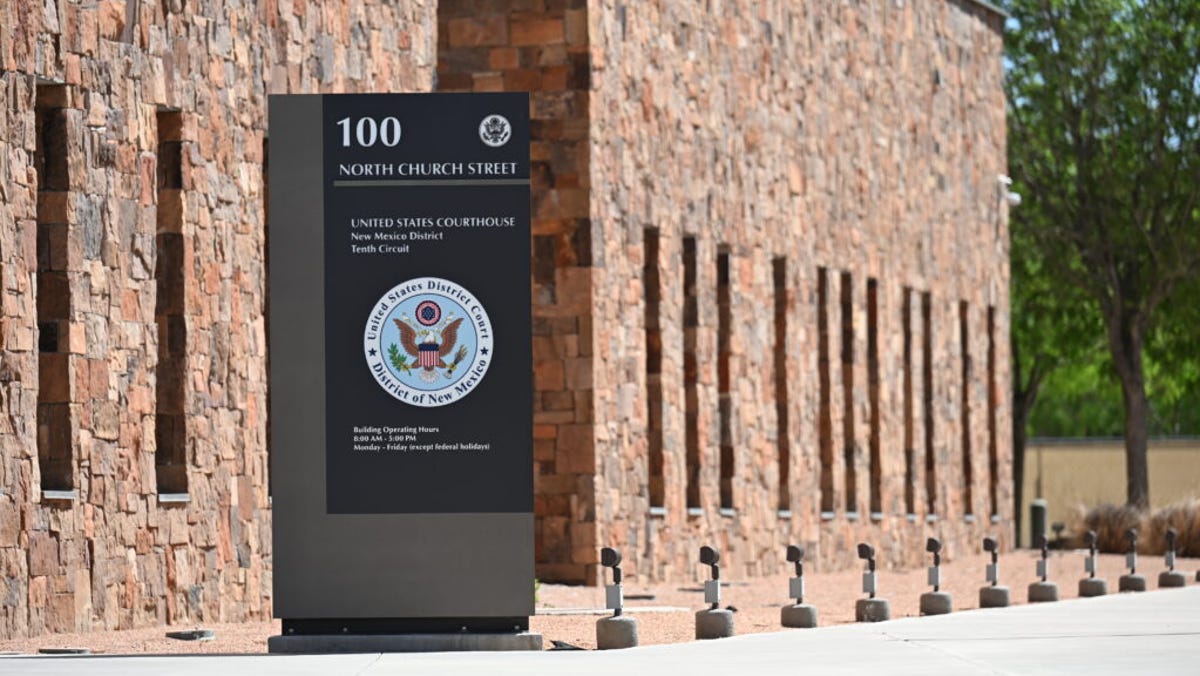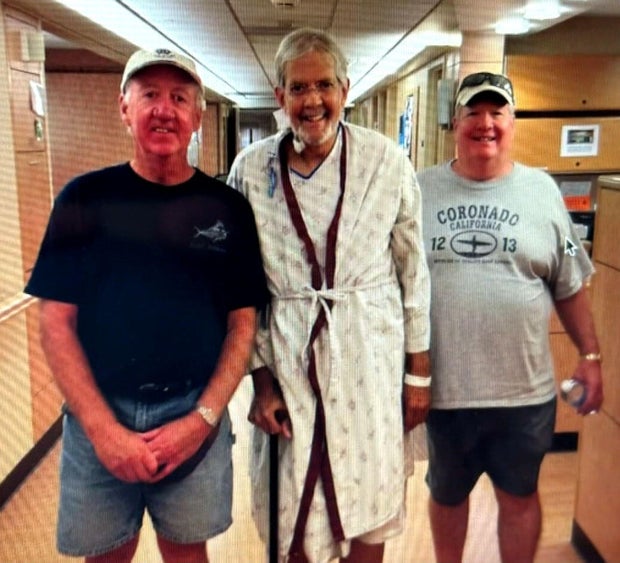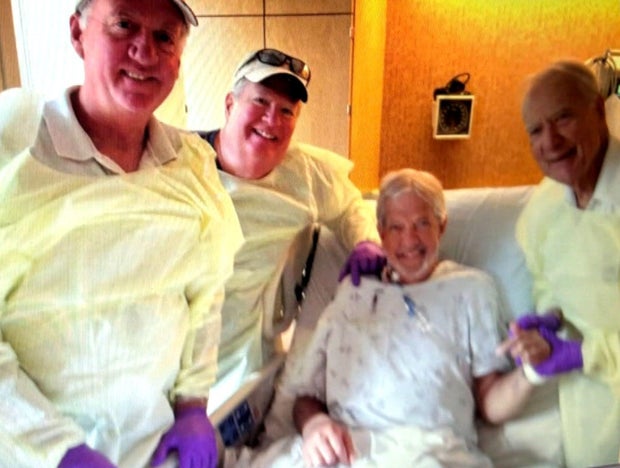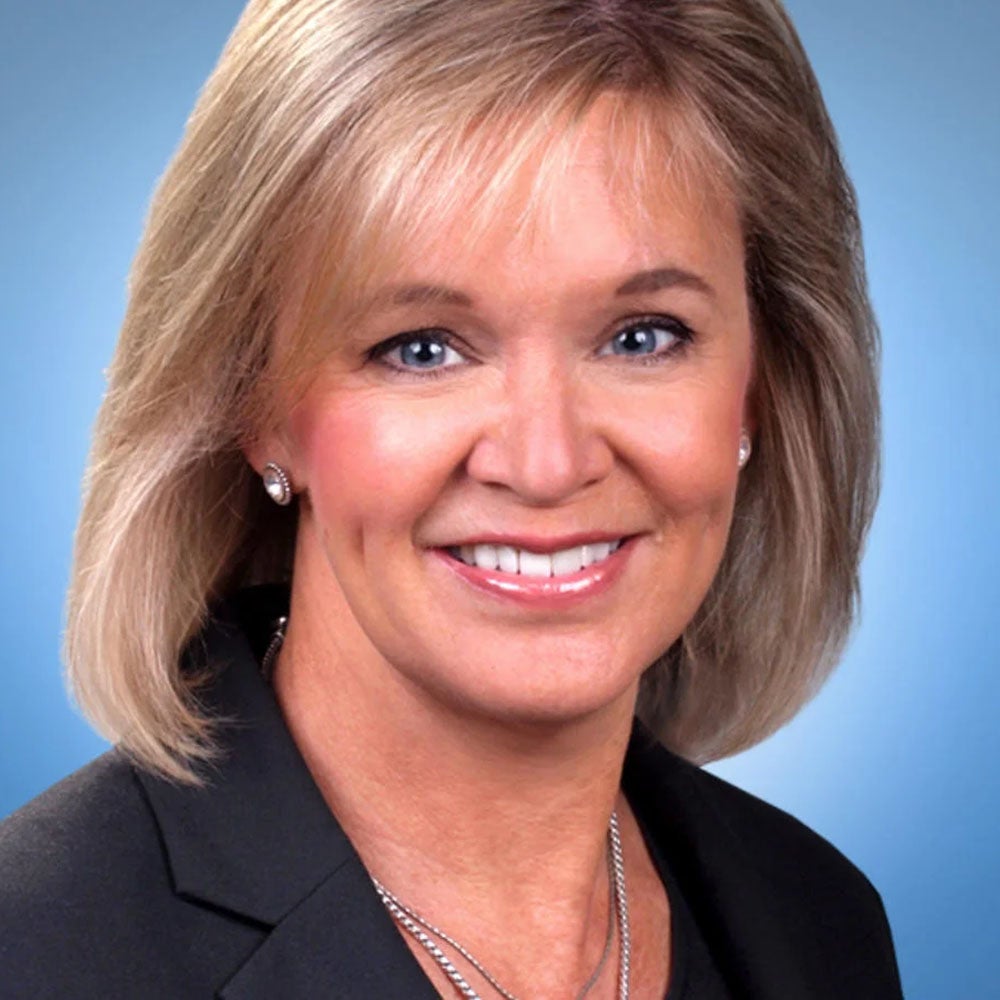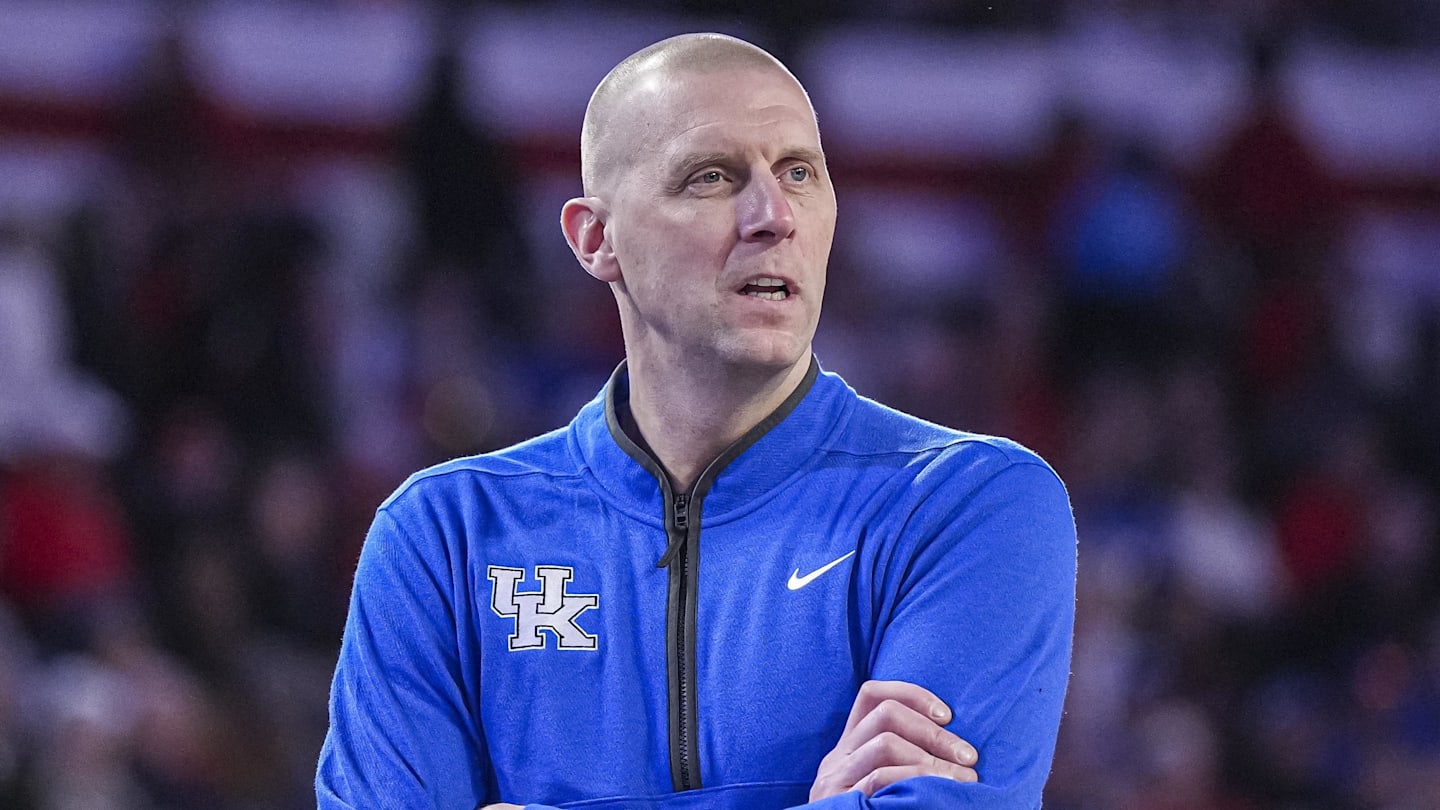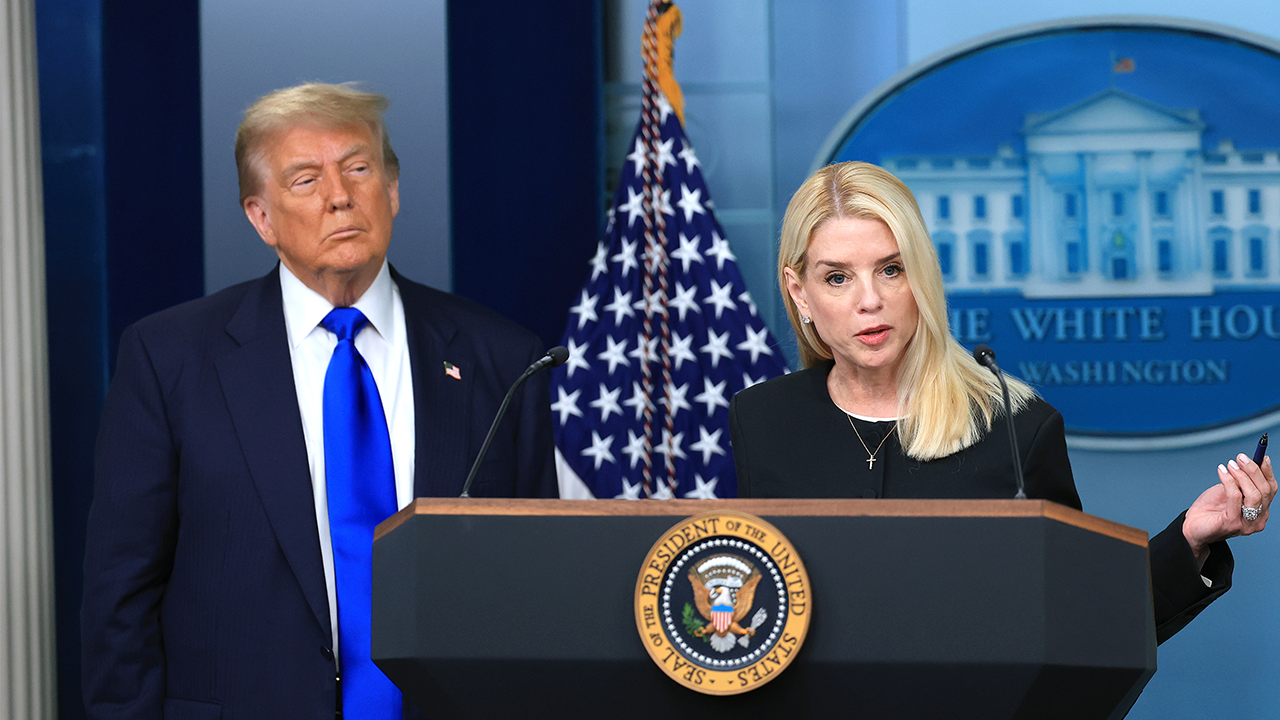Denver, CO
RTD’s reduced fares and monthly pass prices take effect in the new year. Here is what’s changing.

Colorado’s Regional Transportation District will give its train and bus riders’ wallets a break in the new year by reducing its base local fare for the first time in its history — and slashing monthly pass costs even more deeply as part of a full revamp of its pricing.
The metro Denver transportation agency’s board approved the fare restructuring plan in July, and it takes effect on Monday, Jan. 1. The standard fare on most buses and most trains will be $2.75, down just a quarter from the current $3 local fare.
But by simplifying and combining some of its fare tiers, RTD’s changes will save many riders even more than that — including up to 56% if they purchase a full-price monthly pass.
An overview of the changes:
- The new $2.75 standard fare will replace the current local ($3) and regional ($5.25) fares for up to three hours of bus and train rides.
- Day passes for all rides except for those to Denver International Airport will cost $5.50, down from the current $6 local and $10.50 regional day passes.
- Rides that begin or end at DIA, including on the A-Line train, will cost $10, down from $10.50.
- RTD’s standard monthly pass will cost $88 for the entire system, down from the current $114 for a local pass and $200 for a regional pass (including airport access).
- Discount fares will be standardized at 50% off for all riders who qualify — people ages 65 and older, those with disabilities, Medicare recipients and riders who meet low-income qualifications. The new pricing is $1.35 for a regular three-hour fare, $2.70 for a day pass and $27 for a monthly pass.
Notably, the adjustment to RTD’s highest fare — for the airport — was slight, with that pass still costing $10. That was purposeful, according to RTD general manager and CEO Debra Johnson.
The fare changes are the result of three goals: “equity, simplicity and affordability,” Johnson said in an interview.
“We had an opportunity to really decrease the barriers to entry,” she said, since fare costs prevented some Coloradans from taking advantage of the transportation service.
Airport travelers typically don’t fall into lower-income brackets, she said, so that fare isn’t being reduced much. But airport workers who take transit and don’t receive an RTD pass through work will benefit significantly from the reduced cost of the monthly pass.
“When you talk about public transportation, I always say: My personal belief is it’s the great societal equalizer,” Johnson said.
When she first visited Denver to take on her leadership role more than three years ago, Johnson said, “I had difficulty deducing the fares” because of their complexity. That spurred her decision in 2021 to launch a lengthy fare study and equity analysis that took into account the voices of marginalized communities, culminating in last summer’s board approval of the updated fare structure.
In September, at the end of two months of free fares during the summer ozone season, RTD also kicked off a year-long Zero Fare for Youth pilot that is allowing riders 19 and younger to ride trains and buses without paying. It’s looking for partners to extend that program beyond August.
RTD expects ridership to rise as a result of the fare changes and the youth program, and fare revenue will decline. But fare revenue has covered just 5.6% of operating expenses this year, with sales taxes providing the lion’s share of RTD revenue.
As it comes out of the pandemic, RTD is stretched thin — with ridership still at roughly 60% of pre-pandemic levels and a continuing worker shortage that has slowed the restoration of service cuts.
Jacob Belgrad, a transportation advocate at GreenLatinos Colorado, called the fare decreases “a much-needed change, as the prices for public transit in Denver were among the worst nationally.”
As RTD’s ridership lags, he sees cost as a barrier. He said the group’s members were most excited about the new rates for the monthly and three-hour passes.
“When we look at other major cities like New York and Chicago, we see that their monthly pass and single ride prices are similar — around $90 and $2.50 to $3, respectively,” Belgrad said.
But price counts as “only one piece of the puzzle,” he added. On top of concerns about RTD lines’ reliability and frequency, “lots of people have reported feeling unsafe on Denver’s buses, primarily because of public drug use,” Belgrad said.
Danny Katz, executive director of the Colorado Public Interest Research Group, said that “anytime that we can make it more affordable and simpler to use transit, the better.”
He recognizes that RTD stands as “one of the most stable transit agencies coming out of the pandemic,” contrasting with many large agencies that face fiscal cliffs and other difficulties. The agency’s leadership is turning its attention toward tackling staffing challenges and reorienting the system to ensure the team isn’t stretched as thin as it once was, Katz said.
“Now’s the time to focus on growing ridership, and for that, we’ll need to see more frequent and fast service,” he said. “Service is what recruits riders.”
Curbing air pollution, tackling traffic and fighting climate change depends in part “on us having a good transit system,” Katz said, pointing to Seattle as a city that has invested in its system and gotten more people out of their cars.
“If a bus or a train isn’t coming every 10 minutes, then it’s just not a great option,” he said. “Fewer people will be able to or even choose to use it.”

Denver, CO
Denver man gets 48 years in prison for murder of teen in 2022

A Denver man was sentenced Friday to 48 years in prison for the murder of a 14-year-old boy in 2022, according to court records.
Denver District Court Judge Karen Brody sentenced Diego Lopez, 19, on Friday to 48 years in prison, with a credit of two years and 293 days for time served, court records show.
Lopez was 16 years old when he shot Josiaz “JoJo” Aragon in the back and then pistol-whipped, beat and stabbed the 14-year-old. Aragon was days away from celebrating his 15th birthday.
Lopez was also ordered to pay $10,000 to Aragon’s family during Friday’s sentencing hearing, according to court records.
Aragon’s body was found at a baseball field near Denver’s Southwest Recreation Center on Aug. 8, 2022.
The two teenagers knew each other from school and had met at the baseball field for a gun sale, police said. Lopez shot Aragon in the back after they made the deal.
Denver, CO
Coloradan participating in this weekend’s Donor Dash in Denver says transplantation changed his life: ‘It saved me’

The 26th annual Donor Dash takes place this weekend in Denver, and among the participants will be a Coloradan whose life was changed drastically by transplantation.
A dozen years ago Doug French, 74, was struggling with burning eyes and swelling. He was living with hepatitis C.
CBS
“It didn’t stop me, but it surely slowed me down,” he said.
While he was holding out hope the newer treatments would assist with his situation, French went to meet with the hepatologist.
“He said, ‘If you don’t get a transplant, you won’t survive.’ And I went, ‘Oh, I see. I got this.’ That changed everything.”
French was living in Colorado at the time and was put on a transplant list in Oregon. So he and his wife moved temporarily to Portland and lived in a hotel for four months before he got the call they were hoping for. A recently deceased organ donor had a liver that was a match.
Doug French
“Waking up from that transplant was a miracle. For the first time in years, my eyes weren’t burning from hepatitis C,” French said.
French recently celebrated 10 years since receiving his new organ, and with his body functioning at a higher level, he has lost 110 pounds.
He has always been an avid scuba diver, and in addition to making it easier for him to do one of his favorite hobbies, his new liver has allowed him to take other activity levels to new lengths. He completed his first half marathon in April. That was something he wasn’t even thinking about prior to his transplant.
“Was it even on the back of your mind: ‘One day I’m going to do a half marathon?’” CBS Colorado’s Michael Spencer asked French.
“Oh no, no, no,” said French, who jogged with his nephew-in-law. “During that particular time, I kind of like draw a blank about my life and about my future. I had no idea what was next. It saved me. And I’ve I can’t say enough about how grateful I am,” he said.
Doug French
The Donor Dash takes place on Sunday at Washington Park. CBS Colorado is a sponsor of the event and Spencer serve as the emcee of the event. Find out how you can register for the event or help the Donor Alliance at donoralliance.org/donor-dash/.
Denver, CO
Mayors of Denver and Aurora discuss a possible truce as they face growing economic challenges
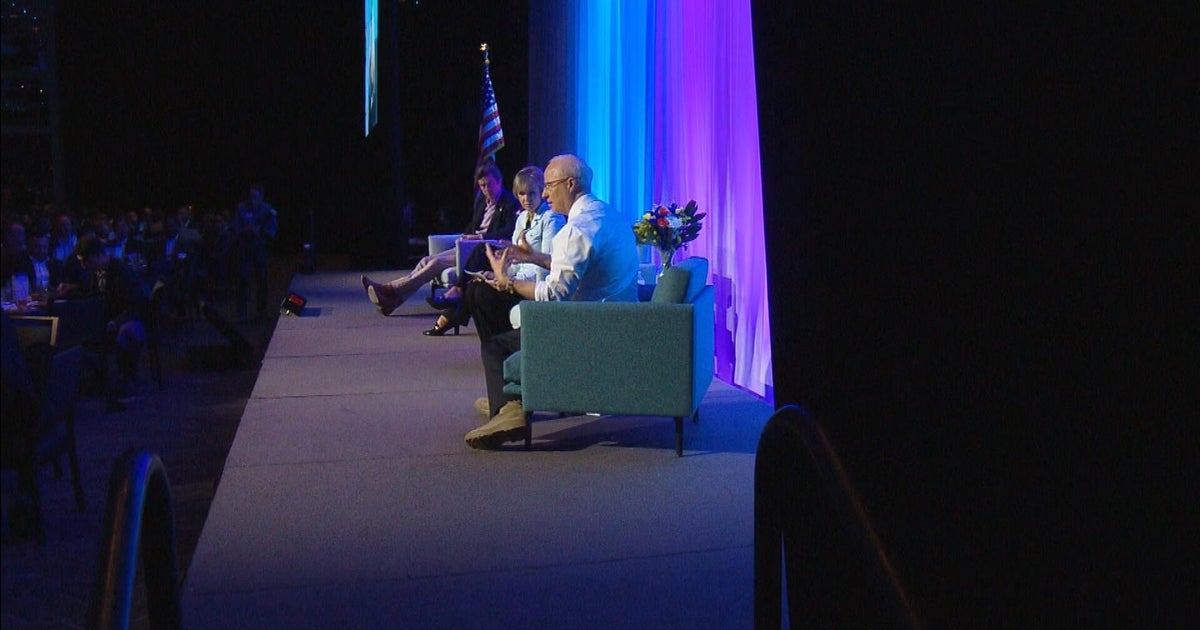
The Denver Metro Chamber of Commerce held its State of the Cities event Wednesday, just days after releasing a new report that shows a slowing economy in Colorado.
The report, by economists at the Chamber and Boulder Leeds School of Business, finds unemployment and foreclosures are up year over year while consumer confidence and home sales are down. The one bright spot is jobs, which are up .1%.
The mayors of Denver, Aurora and Northglenn say they are feeling the shift.
“Our sales tax in Northglenn is down,” said Northglenn Mayor Meredith Leighty. “In May, we’re looking at a decrease of 2%.”
The mayors assured the Chamber’s small business owners they were doing what they could to help. They say the lack of affordable housing is among their biggest challenges.
“Right now, the cost of materials is going up, the cost of land is going up, and the cost of labor is going up,” said Denver Mayor Mike Johnston.
He says the city is giving tax breaks for middle income housing projects. Northglenn just opened a new townhome complex and senior living facility.
Coffman says he’s focused on redeveloping 30 blocks of Colfax Avenue.
“Transitioning back from retail over to multi-family residential — a mix of market-rate housing and affordable workforce housing.”
Economists at the Denver Metro Chamber say while Colorado ranked among the top states in real GDP, employment, income growth, and home price appreciation from 2008 to 2023, it ranked among the bottom 10 states in 2024.
If a cooling economy isn’t troubling enough, an icy relationship between Coffman and Johnston is complicating things further.
Johnston shrugged off the year-long standoff.
“There is no distrust, is no damage. My door is always open,” he said.
Coffman vehemently disagreed.
“There is an issue and there is distrust,” he said.
Aurora sued Denver saying it violated their mutual aid agreement during the George Floyd protests and then sent gang-affiliated migrants to Aurora.
Your Political Reporter Shaun Boyd, who moderated the event, ask the mayors what it would take to bury the hatchet. One suggested quarterly meetings that include the mayors and their top staff. The other agreed.
The Chamber’s State of the Cities event included more than 400 business and community leaders and focused on collaboration — not only between cities but between local government and the business community.
-
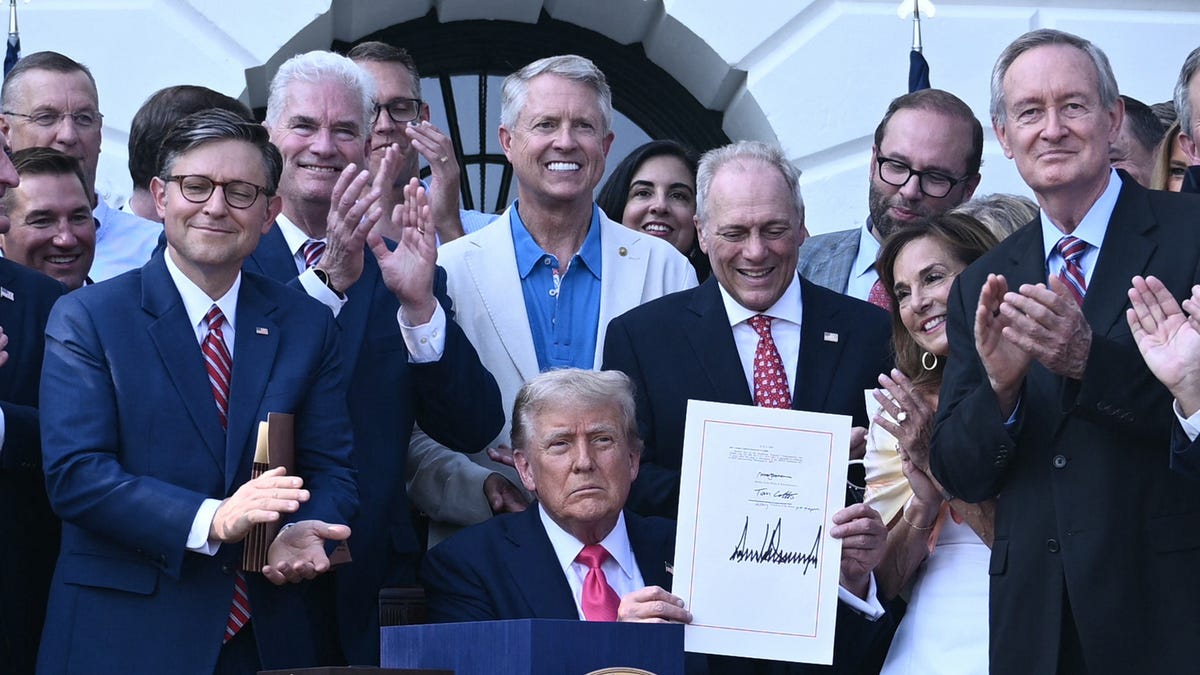
 Iowa1 week ago
Iowa1 week ago8 ways Trump’s ‘Big, Beautiful Bill’ will affect Iowans, from rural hospitals to biofuels
-
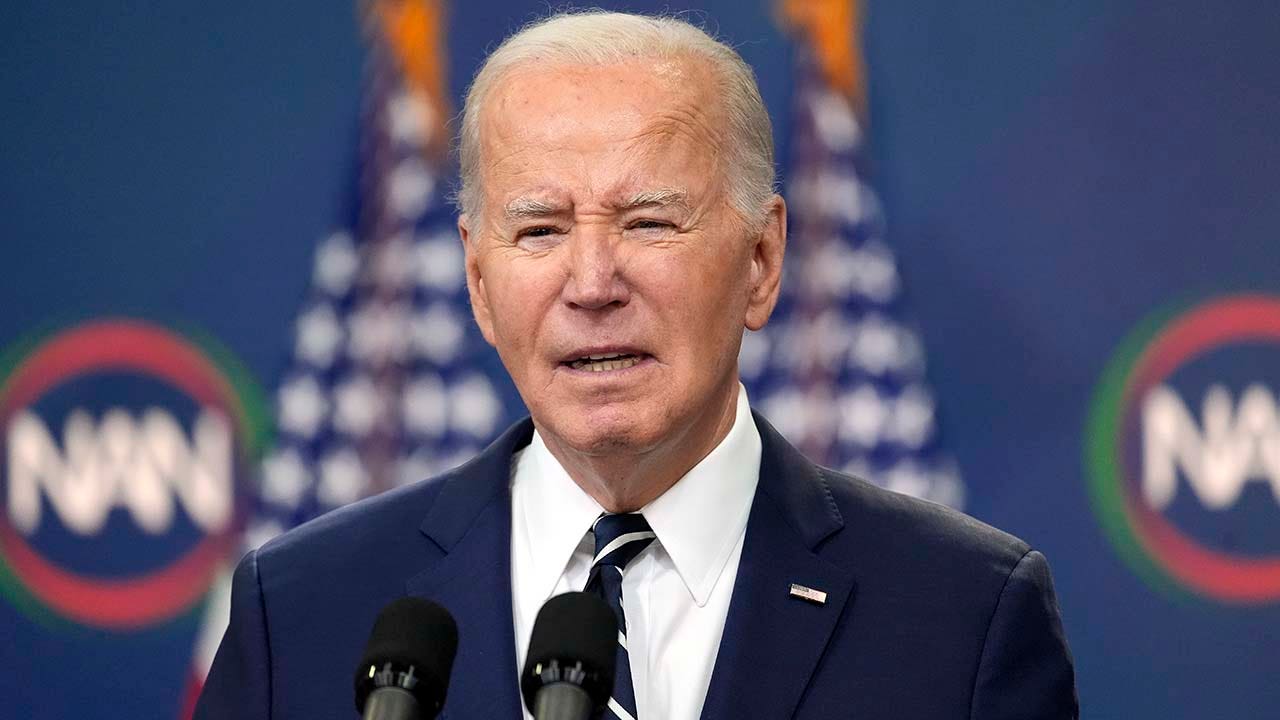
 Politics1 week ago
Politics1 week agoConstitutional scholar uses Biden autopen to flip Dems’ ‘democracy’ script against them: ‘Scandal’
-
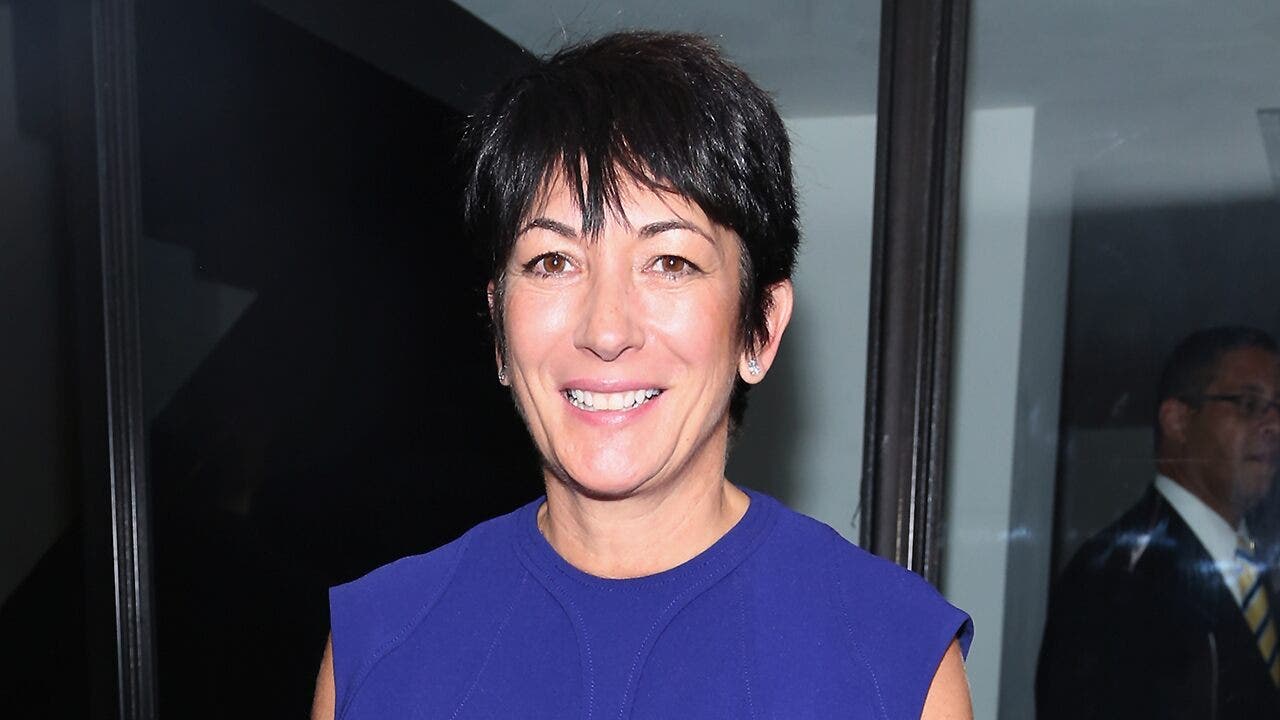
 Politics1 week ago
Politics1 week agoDOJ rejects Ghislaine Maxwell’s appeal in SCOTUS response
-

 Health1 week ago
Health1 week agoNew weekly injection for Parkinson's could replace daily pill for millions, study suggests
-
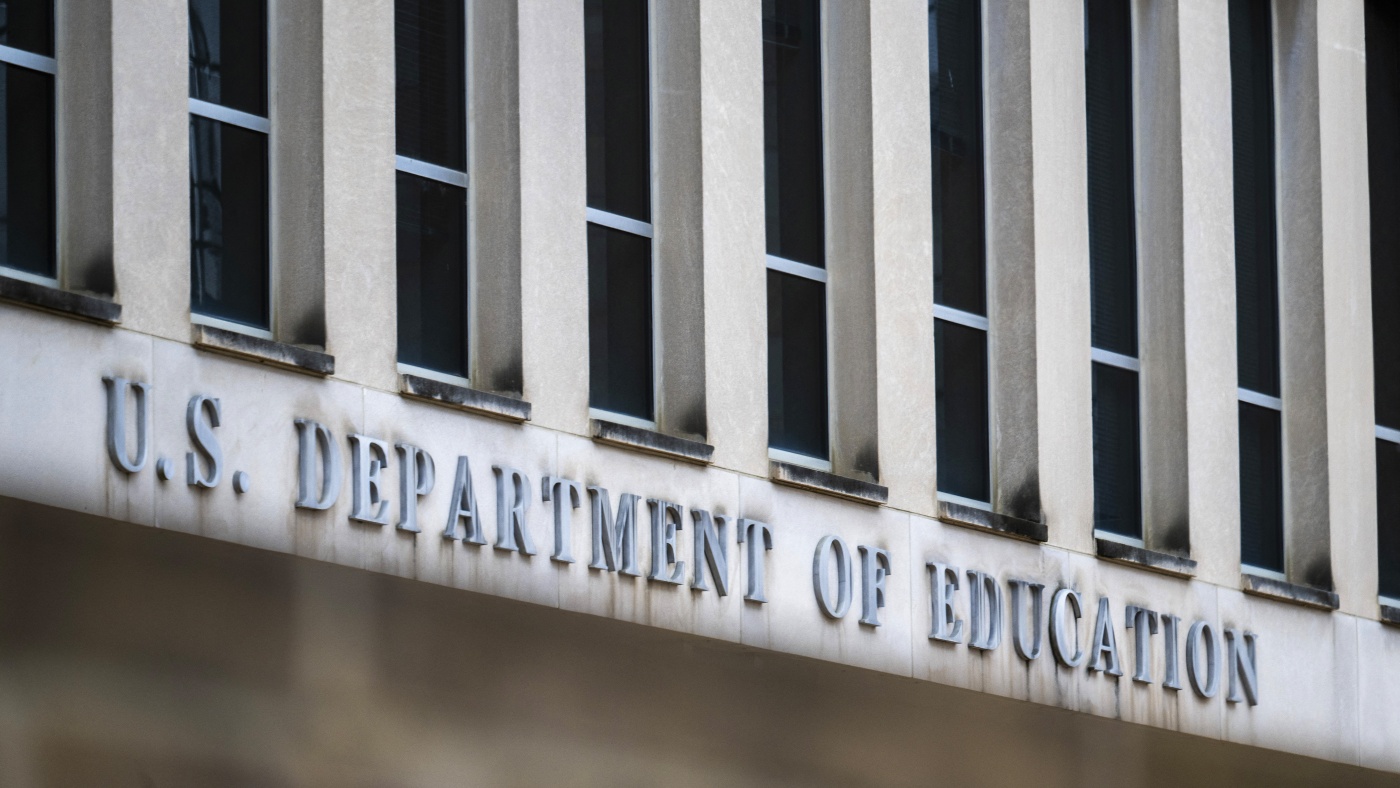
 News1 week ago
News1 week agoSCOTUS allows dismantling of Education Dept. And, Trump threatens Russia with tariffs
-

 Culture1 week ago
Culture1 week agoTest Your Knowledge of French Novels Made Into Musicals and Movies
-
Business1 week ago
Musk says he will seek shareholder approval for Tesla investment in xAI
-

 Sports1 week ago
Sports1 week agoEx-MLB pitcher Dan Serafini found guilty of murdering father-in-law


